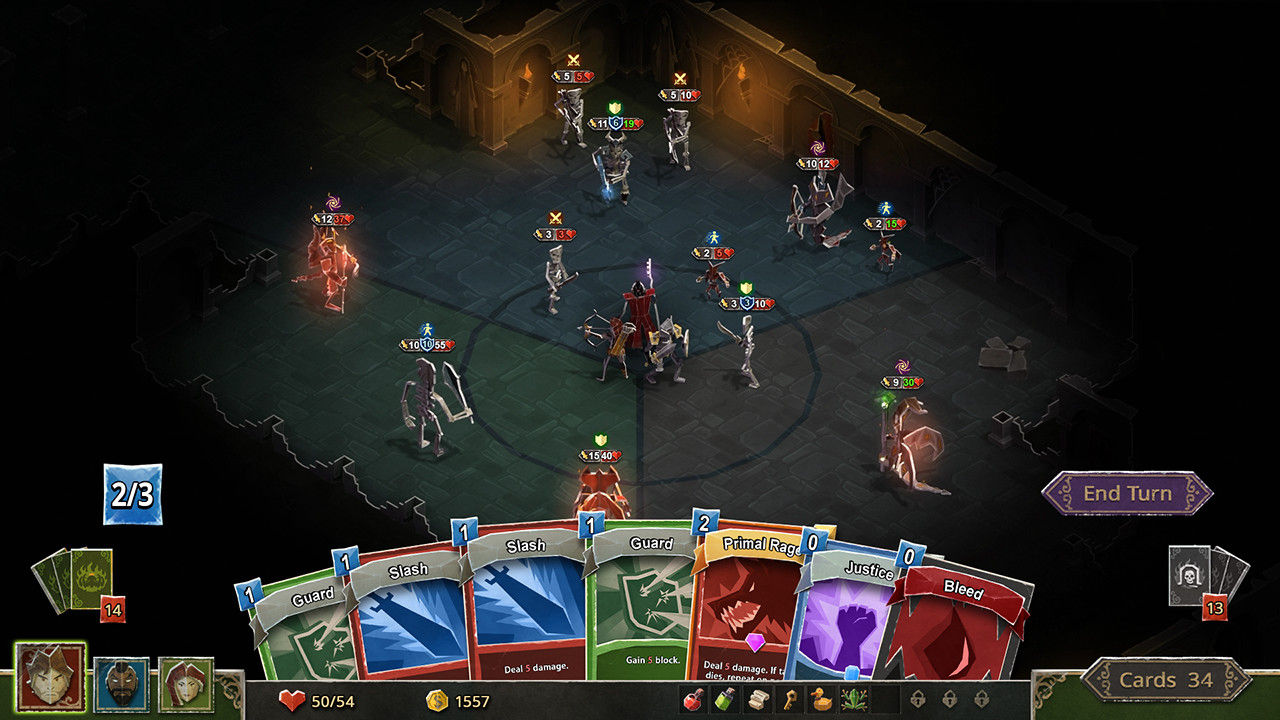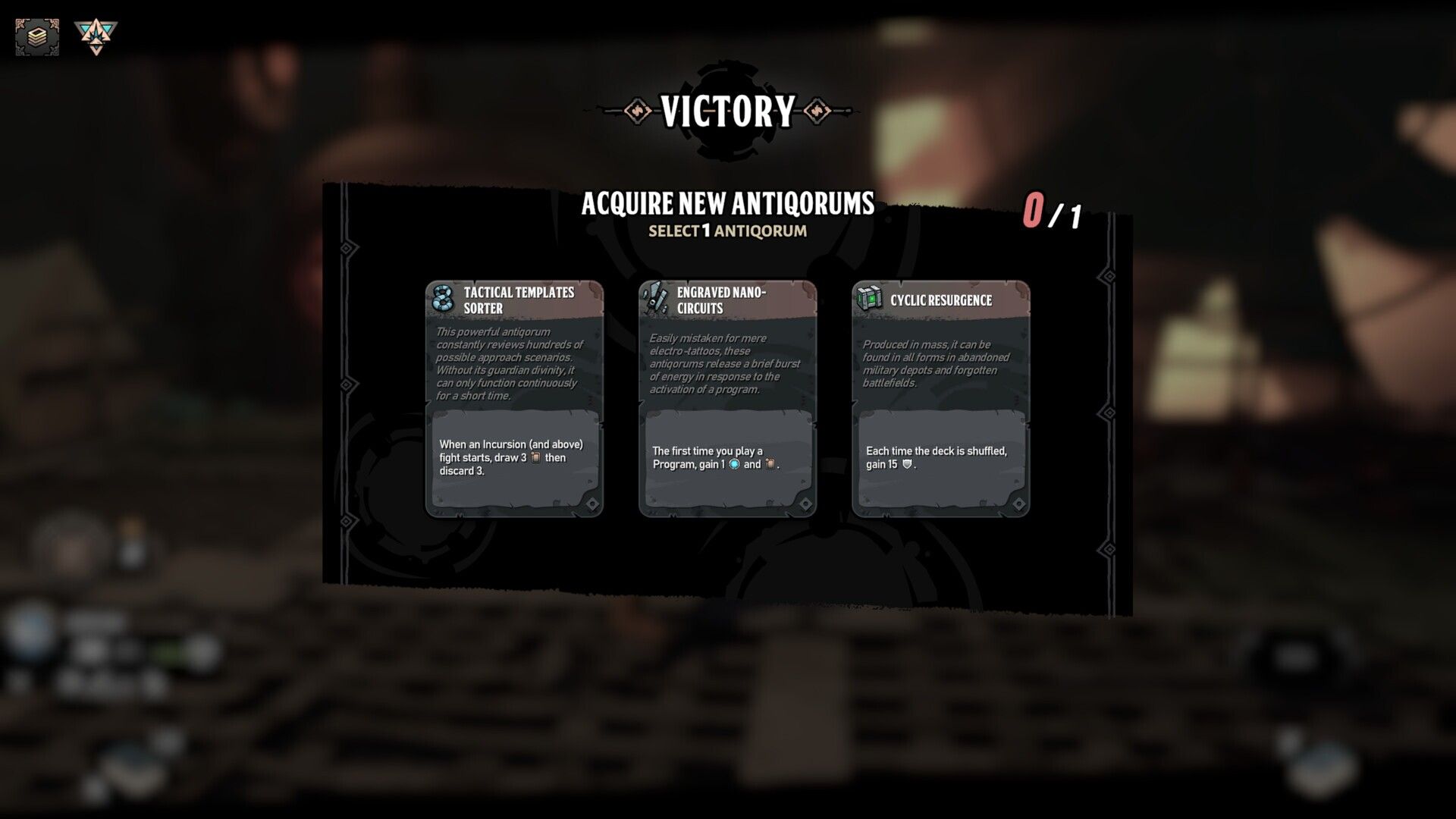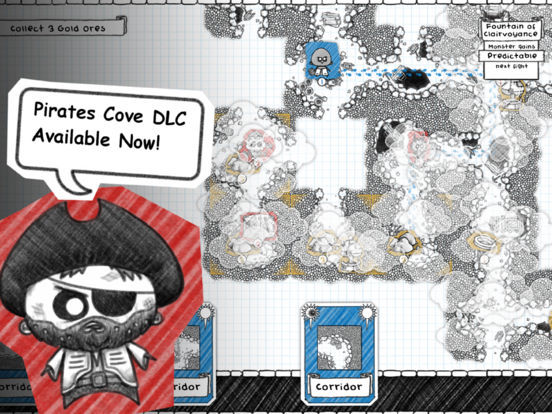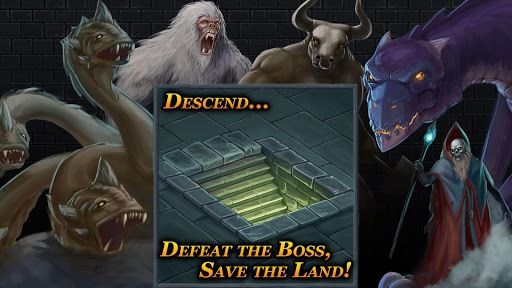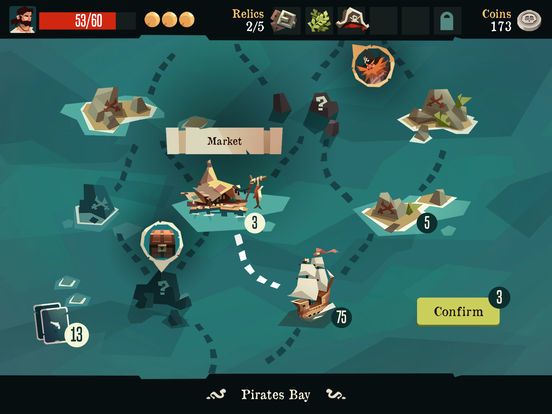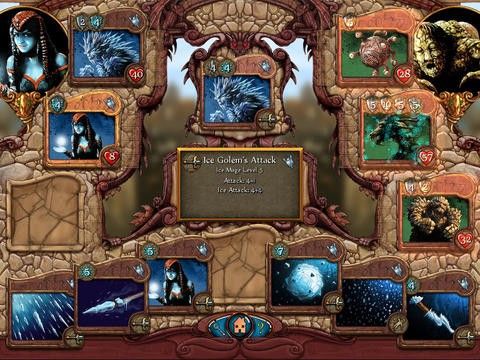Monster Train VS Roguebook
Which roguelike deckbuilder offers the most strategic depth?
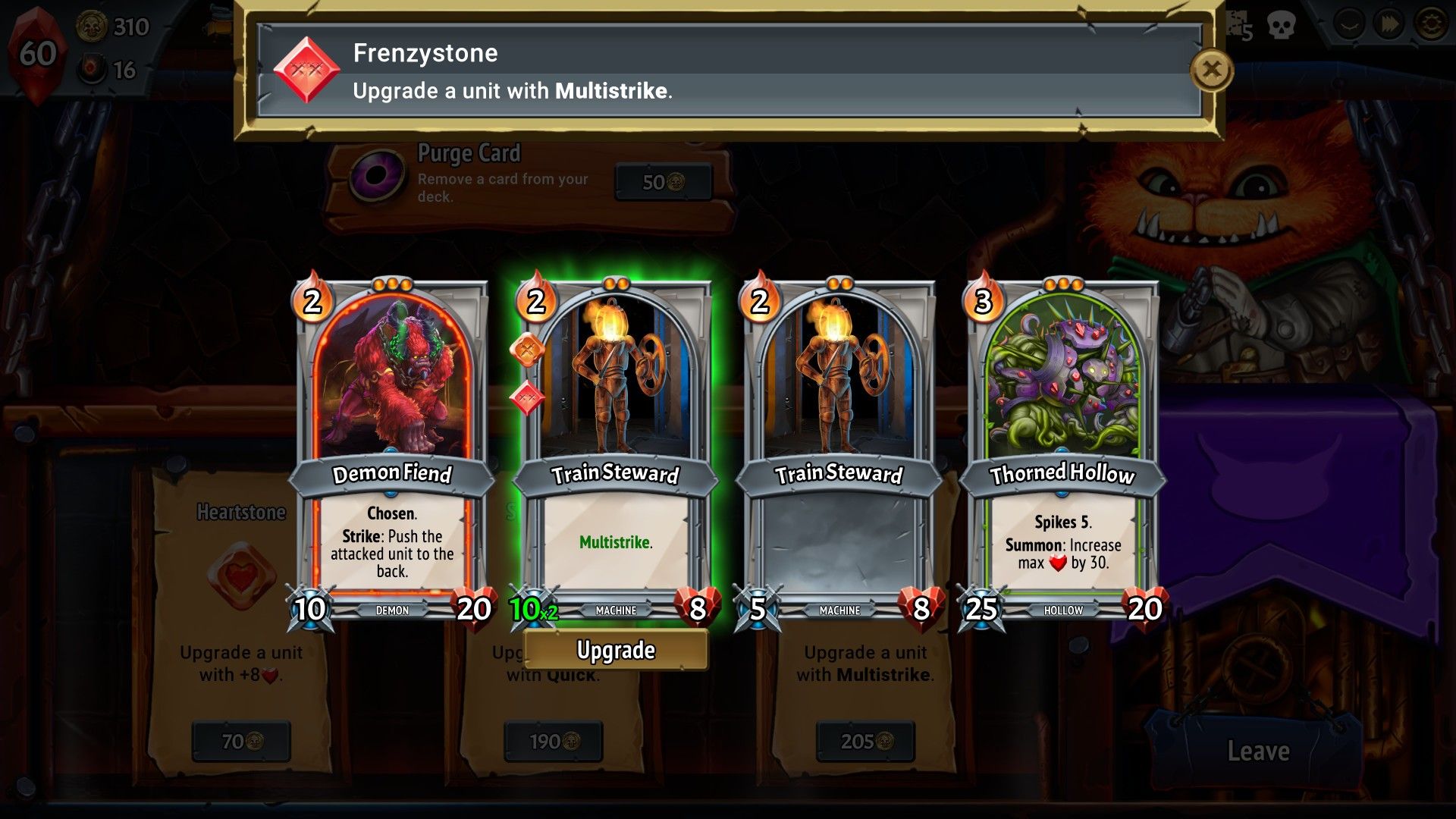
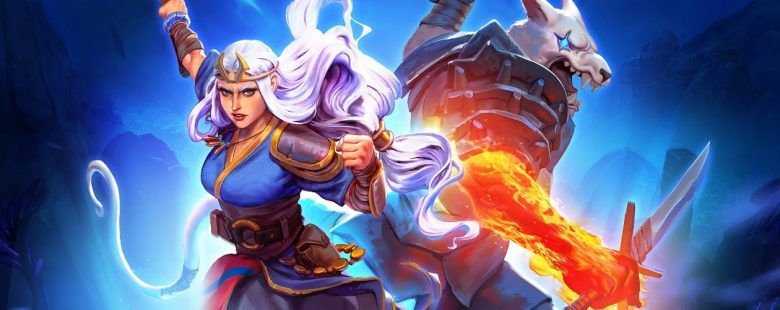
A Dance of Cards: Navigating the Depths of Monster Train and Roguebook
Deckbuilding Mechanics
Monster Train presents an intricate tapestry of card construction, weaving together a layered strategy across its three vertical planes of combat. The ability to upgrade cards twice and duplicate favorites adds a delicious complexity, allowing players to craft personalized arsenals. In contrast, Roguebook’s dual-hero system introduces a dynamic interplay between characters, enriching the tactical landscape. The inclusion of gem sockets for card enhancement invites an endless dance of customization, where each choice ripples through your strategic narrative. Thus, while Monster Train offers a structured approach, Roguebook embraces chaotic creativity.
Monster Train presents an intricate tapestry of card construction, weaving together a layered strategy across its three vertical planes of combat. The ability to upgrade cards twice and duplicate favorites adds a delicious complexity, allowing players to craft personalized arsenals. In contrast, Roguebook’s dual-hero system introduces a dynamic interplay between characters, enriching the Tactical landscape. The inclusion of gem sockets for card enhancement invites an endless dance of customization, where each choice ripples through your strategic narrative. Thus, while Monster Train offers a structured approach, Roguebook embraces chaotic creativity.
Storytelling & Worldbuilding
Roguebook enchants with its rich lore, drawn from the world of Faeria. The gamebook-inspired narrative unfolds like an ancient tome, teeming with legendary encounters and exotic lands. Its mischievous nature transforms each playthrough into a journey of discovery and cunning. Monster Train, though not as steeped in narrative depth, presents a stark, compelling backdrop of hell besieged by heaven. Its world is defined through gameplay, with each clan offering a distinct flavor of the infernal struggle. Thus, for those seeking immersive storytelling, Roguebook is a siren's call, while Monster Train thrives on its thematic simplicity.
Roguebook enchants with its rich lore, drawn from the world of Faeria. The gamebook-inspired narrative unfolds like an ancient tome, teeming with legendary encounters and exotic lands. Its mischievous nature transforms each playthrough into a journey of discovery and cunning. Monster Train, though not as steeped in narrative depth, presents a stark, compelling backdrop of hell besieged by heaven. Its world is defined through gameplay, with each clan offering a distinct flavor of the infernal struggle. Thus, for those seeking immersive storytelling, Roguebook is a siren's call, while Monster Train thrives on its thematic simplicity.
Art & Audio Design
Monster Train seduces with its vibrant, infernal aesthetic, each clan depicted in lush detail. The soundtrack underscores the fiery urgency of its setting, immersing players in a symphony of strategic warfare. Roguebook, with its vibrant palette and whimsical art style, evokes a sense of wonder and mysticism. The audio complements this fantastical world, creating an atmosphere where legends come alive. In comparing the two, Monster Train’s art resonates with intensity, while Roguebook paints a canvas of enchanting whimsy, each offering a distinct sensory experience.
Monster Train seduces with its vibrant, infernal aesthetic, each clan depicted in lush detail. The Soundtrack underscores the fiery urgency of its setting, immersing players in a symphony of strategic warfare. Roguebook, with its vibrant palette and whimsical art style, evokes a sense of wonder and mysticism. The audio complements this fantastical world, creating an atmosphere where legends come alive. In comparing the two, Monster Train’s art resonates with intensity, while Roguebook paints a canvas of enchanting whimsy, each offering a distinct sensory experience.
Replay Value
Both games shine in their procedural challenge design, yet they take divergent paths. Monster Train’s covenant levels and plethora of clans promise an ever-evolving challenge, encouraging mastery through repetition. Its multiplayer modes, including Hell Rush and Daily Challenges, further extend its lifespan for those seeking competitive edge. Conversely, Roguebook thrives on its narrative permutations and the randomization of its world. Each playthrough is a new story waiting to unfold, appealing to those who relish narrative exploration over mechanical mastery. Thus, Monster Train caters to the strategist, while Roguebook invites the storyteller.
Both games shine in their procedural challenge design, yet they take divergent paths. Monster Train’s covenant levels and plethora of clans promise an ever-evolving challenge, encouraging mastery through repetition. Its Multiplayer modes, including Hell Rush and Daily Challenges, further extend its lifespan for those seeking competitive edge. Conversely, Roguebook thrives on its narrative permutations and the randomization of its world. Each playthrough is a new story waiting to unfold, appealing to those who relish narrative Exploration over mechanical mastery. Thus, Monster Train caters to the strategist, while Roguebook invites the storyteller.
Winner: Tie
Editorial Review

In Roguebook, every page turned is a step deeper into a world where myths breathe and legends whisper.
- LYRA

Monster Train excels in strategic depth, with each decision a critical puzzle piece in the infernal defense.
- SHADE

Both games offer a fun dive into deckbuilding, but Monster Train's quick pace might be more welcoming to newcomers.
- FELIX

For those seeking competitive thrills, Monster Train’s Hell Rush mode stands as the ultimate test of strategic prowess.
- ORION
You might also like
About the author

Lyra
I’m passionate about the invisible and the mysterious. For me, cards are gateways to other dimensions. I love writing in a poetic and immersive way, blending reality with dreamlike metaphors.
